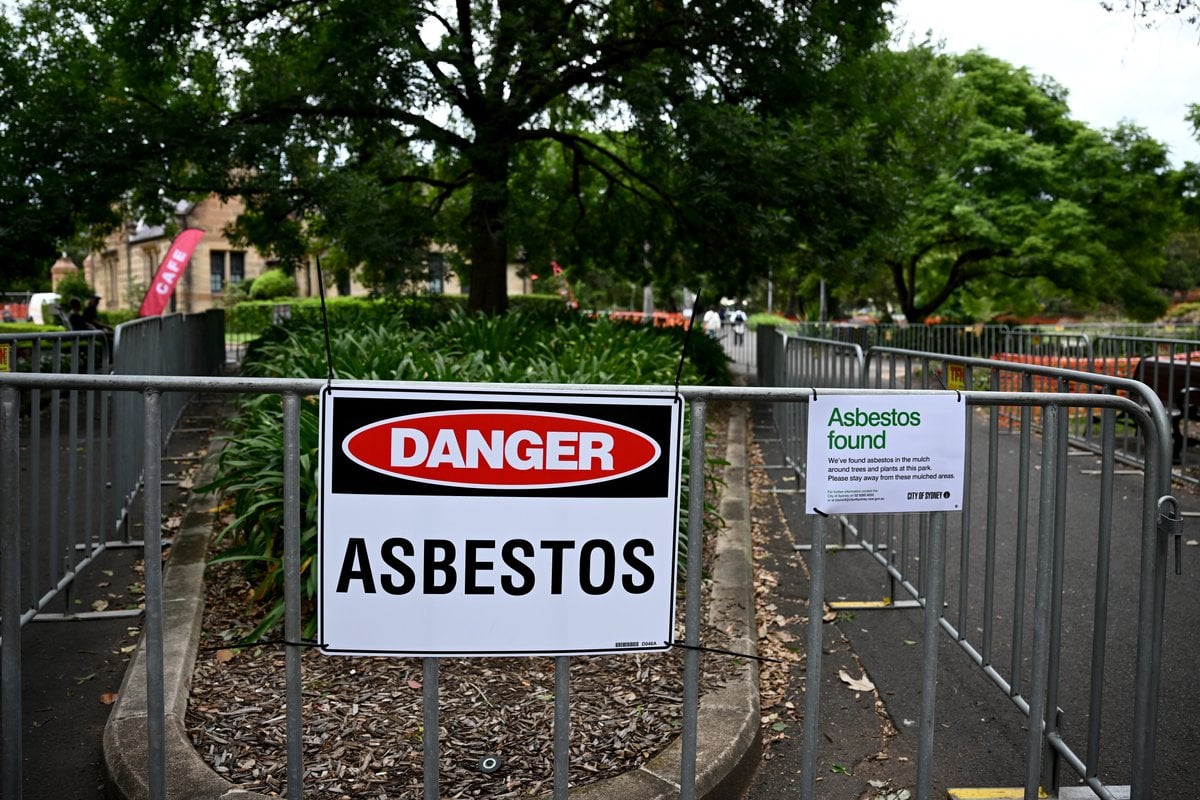
Sydney has an asbestos crisis on its hands – and the state government is scrambling.
It all began back in January when asbestos was found in mulch used at the Rozelle Parklands in Sydney's Inner West. More than 10 tonnes of asbestos-laden mulch had been laid down, the alarm raised when a child brought home the material.
Then the situation deepened.
Asbestos-contaminated mulch was found at several Metro train stations and parks across central and western Sydney, as well as near a Western Sydney hospital and school.
This week bonded asbestos fragments were found in mulch at Liverpool West Public School's playground.
The asbestos Sydney crisis. Post continues below.
The NSW Environment Protection Authority (EPA) chief executive Tony Chappel said the results were concerning and his organisation would work around the clock to ensure the safety of the school community. The school has been closed for a couple of weeks, the students now moved to remote learning for the time being.

Top Comments